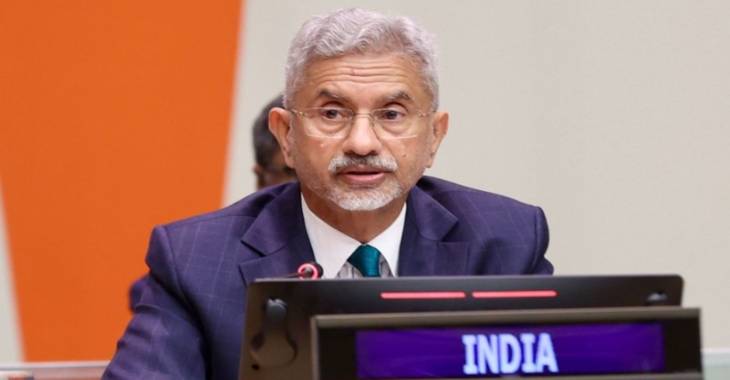India demanded on Wednesday that the Security Council and other international decision-making bodies be urgently reformed in order to provide the Global South with the representation it deserves.
Speaking at the G20 conference of foreign ministers, External Affairs Minister S. Jaishankar stressed the necessity and urgency of revamping the UN to make sure it was functional, credible, and represented.
According to EAM Jaishankar, one of the reforms should be to increase the number of elected and permanent seats on the Security Council.
The G20 ministers, who represent the largest developed and developing nations, convened during the high-level UN General Assembly conference.
S. Jaishankar stated that reforms were necessary to make the international financial architecture more “robust, expansive, and effective” during a lecture that covered the topic of international development and financial organisations in great detail.
He brought up India’s attempts to restructure multilateral development banks (MDBs) to better serve the interests of developing nations during its tenure as the G20 chair.
India established a group of foreign economic specialists to advise the MDBs on changes during its G20 chairmanship, and the G20 approved their recommendations.
Increasing capital, tripling loans for sustainable development by 2030, simplifying processes, and promoting greater risk-taking in funding initiatives were among the panel’s recommendations.
S. Jaishankar attacked the World Trade Organisation (WTO) and demanded a thorough overhaul of the organisation in order to guarantee a rules-based, impartial, and nondiscriminatory multilateral trade system.
Prior to the meeting, he also had a brief discussion with Ngozi Okonjo-Iweala, the director-general of the WTO.
He claimed that the international trading system’s market-distorting policies and protectionism were detrimental to developing nations.
G20 nations should be actively involved in UN reform and “making the Security Council truly representative by addressing the under-representation of Africa, Asia-Pacific, Latin America, and the Caribbean,” according to Secretary-General Antonio Guterres.
The G20’s significance in advancing changes across all domains of the international structures was emphasised by the minister of external affairs.
He stated that “some of the most important challenges of our time: inequality, financing for development, the climate crisis, the impact of new technologies” are being addressed by the G20, the UN, and the so-called Bretton Woods institutions, which include the World Bank and the International Monetary Fund.
“In all these areas, progress is slipping out of reach as our world becomes more unsustainable, unequal, and unpredictable,” stated S. Jaishankar.
“I look to all G20 countries to push for deep reforms so that global financial institutions reflect today’s world and respond to today’s challenges,” he stated.
The Minister of External Affairs added: “We need ambitious reforms of the international financial architecture to make it fully representative of today’s global economy, so it can provide strong support to implement the Sustainable Development Goals.”
S. Jaishankar pointed out that since 2015, investments in renewable energy have surged in China and India but not at all in other growing and developing nations when it comes to combating climate change.
“The energy transition must be based on justice and equity, so that all countries benefit,” said S. Jaishankar.
Read More


